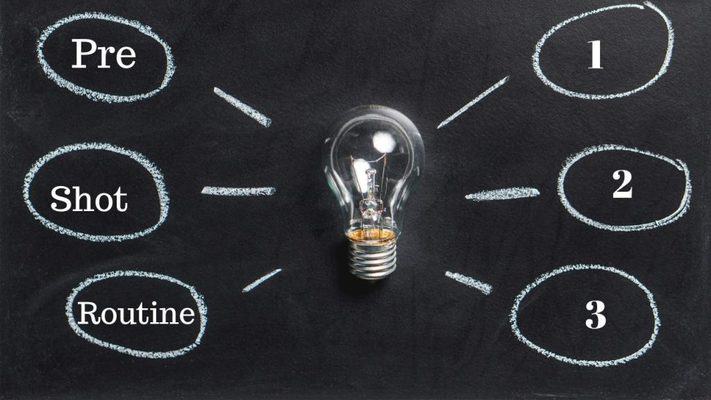Show me the athlete who hasn’t choked under pressure and I will show you an athlete who hasn’t been under sufficient pressure yet.
It is well-known that many sportsmen and women choke under pressure. This can be seen in major tournaments when the favorite loses to a player who was not expected to win. In this blog post, we will explore the role of psychology in sports, with a focus on pool and snooker players.
We will look at what causes good players to choke under the pressure of a big event, and what can be done to help with this problem. The conscious mind tries to take a bigger role in skill execution to the detriment of performance, which often leads to choking under pressure.
Several things can be done to help with this problem. One is to learn how to deal with the fear of failure. This involves recognizing when you are feeling this fear and then taking steps to counter it. Some players find that visualization exercises can help combat the fear of failure. Visualizing yourself winning the match can help to calm your nerves and focus your mind on the task at hand.
The fear of failure can be a major cause of choking under pressure. It is common for players to experience a feeling of dread when they think about losing the match or letting their team down by missing an important shot.
It may seem that there are only two ways out: either quit playing completely or become so good at it that you will never choke again under pressure. But neither of these options is realistic or desirable.
There is a better way, and that is to learn how to manage the fear of failure. This involves taking control of your thoughts and emotions so that they do not take over your performance.
When you experience the fear of failure, it is important to stay calm and focused on what you need to do. Remind yourself that there is no shame in losing if you gave it your best shot.
The next step is to recognize the signs of choking under pressure.
These signs include:
- Shaking hands
- Rapid heart rate
- Shallow breathing
- Slowing tempo
- Fuzzy thinking
- Sweaty palms
- Tunnel vision
If any of these symptoms occur during competition or practice sessions then it may be time for some coaching on how to cope with anxiety before they start to impact performance.
Psychological causes of choking can be summarized as follows:
Conscious Control
The conscious mind pays too much attention to how well a task is being executed and therefore actually interferes with its completion. The player becomes distracted by making explicit what should be implicit, automatic, or subconscious (e.g., thinking about their grip or stance). This happens more often when a player is anxious about failing and wants to try harder. The more a player consciously attends to their performance, the worse it gets. This becomes a habit and the player starts to doubt themselves in important matches.
They start overthinking and this can lead to problems such as missing shots they would usually make or playing too cautiously, which leads to even more mistakes. This problem is often seen in beginner and intermediate level players who are not used to playing under pressure. Many top-level athletes have learned how
The Yips
This phenomenon is characterized by an inability to complete a task in a particular sport or activity that was once automatic and now requires conscious thought (e.g., putting in golf). It is often linked with anxiety but can also be caused by physical problems.
The choking under pressure often seen in sport is a result of the conscious mind trying to take over and control skill execution. This can lead to problems with movement, coordination, and decision-making. In pool and snooker, the conscious mind wants to control everything.
Players need to learn how to allow their subconscious minds free reign over their skills or at least develop a balance between both minds so that they can play with more confidence and less fear.
There are two sources of pressure in sport: internal pressure (self-induced) and external pressure (from others).
Internal pressure is usually a result of wanting to win or perform well. It can be caused by personal goals, the expectations of others, or fear of failure. External pressure comes from other people and includes things like fans, coaches, and teammates.
Our minds need some pressure in order to perform at our best. Too much or too little can both be detrimental so it’s important that players find their own optimal level of motivation which is neither excessively high nor low.
Players also need to learn how to cope with the anxiety and fear that comes from being watched by others,
Both types of pressure can be a problem for a player if they are not channeled in the right way. Internal pressure can lead to over-thinking and trying to do too much. External pressure can lead to players feeling overwhelmed and underprepared.
When playing under pressure, players must stay in the present moment as much as possible. This means focusing on what they can control (e.g., their own performance) rather than what is happening around them.
Players also need to be aware of their own physical and emotional state. If they are feeling tired, anxious, or angry, it will be difficult to stay focused and perform well.
Feeling pressured when you play is inevitable but it doesn’t have to be detrimental. The key is knowing how to use this pressure as fuel and transform it into positive motivation instead of letting yourself feel overwhelmed by negative thoughts like “I can’t do this” or “I’m going to mess up.”
What Can Be Done?
There are many things players can do to help them stay calm and focused under pressure:
In my opinion the best thing to do is to make friends with the feelings and accept that they are part of the game.
I spent years trying to get to the point where I wasn’t nervous anymore when I was playing an important match and that time still hasn’t arrived.
It never will.
I am OK with that now.
I expect to be nervous because I am normal. Normal people feel nerves and tension in pressure situations. Learn about yourself and learn to recognize when you feel out of control.
Have techniques in place to help under pressure situations and have the presence of mind to adjust how you react.
Breathing Exercises
Several things can be done to help players deal with this problem:
– First, it is important for athletes to understand their own personality type. Some people are more likely than others to choke under pressure, so it’s helpful if they know how they will react in these situations.
– Athletes should also learn what triggers make them feel nervous or anxious before games and practice sessions (e.g., being watched by other players). Knowing this information can help them avoid these situations whenever possible.
– Athletes need to develop coping strategies for when they do get nervous, such as taking deep breaths or focusing on one particular thing at a time (e.g., their breath). Players must learn how to relax their bodies and minds so they can focus on the task at hand.
– Finally, athletes should practice under pressure as much as possible. This means playing in tournaments or matches where they know they will be feeling nervous. The more experience that players have in these situations, the better they will become at dealing with the pressure.
The fear of failure
The player is afraid they will make a mistake or lose. This makes them more likely to choke because they are worried that others will judge them negatively if something goes wrong during competition .
Players can deal with the fear of failure by:
– Accepting that mistakes are a part of the game. Everyone makes mistakes, so don’t expect yourself to be perfect.
– Focusing on your own performance rather than what others might think of you. This will help you stay relaxed and confident.
– Remember that even if you do make a mistake, it isn’t the end of the world. You can always learn from your mistakes and get better at whatever sport or activity you are doing.
– Having fun! If you enjoy what you are doing then there is no reason to be afraid of failure because failures will not have a negative impact on your happiness.
Ego threat
this happens when an athlete believes that their self-worth depends on winning, so losses can be experienced as personal
The conscious mind pays too much attention to how well a task is being executed and therefore actually interferes with its completion.
When an athlete has high anxiety it can make them feel like they are choking because of all the extra
Another thing that can help is to have a clear game plan going into the match. This involves knowing what you need to do to win, and focusing on executing this plan rather than worrying about the outcome of the match.
Visualize success.
Picturing oneself successfully completing the task at hand can help boost self-confidence and reduce anxiety. The brain accepts the imagined success as real.
Play through the shot in your mind and practice seeing yourself sinking it successfully a few times before you take the shot. This visualization technique is a form of self-hypnosis that can help improve performance.
When you’re feeling under pressure, take a few minutes to visualize yourself playing at your best. See yourself making all the shots you need to win, and feel the sense of satisfaction
Play without thinking.
The thought process is best used in times of preparation when you are deciding on a shot and during the learning process as you practice to improve your technique. Once you have chosen which shot to play and feel confident with your skill execution, do not overthink it.
You can only think about one thing at a time. The more you think about what you are doing, the less skillful your performance will be.
Imagine playing with a robot arm to which you send instructions from your brain and it executes them automatically without any conscious effort or thought process involved at all. You concentrate on this mental image and see yourself play effortlessly without making mistakes as if
Maintain focus on the process rather than outcome-based goals.
Rather than focusing on winning or losing, shift your attention towards maintaining a high level of skill and playing your best. Focus on the things that are within your control, such as your breathing, posture, and technique.


